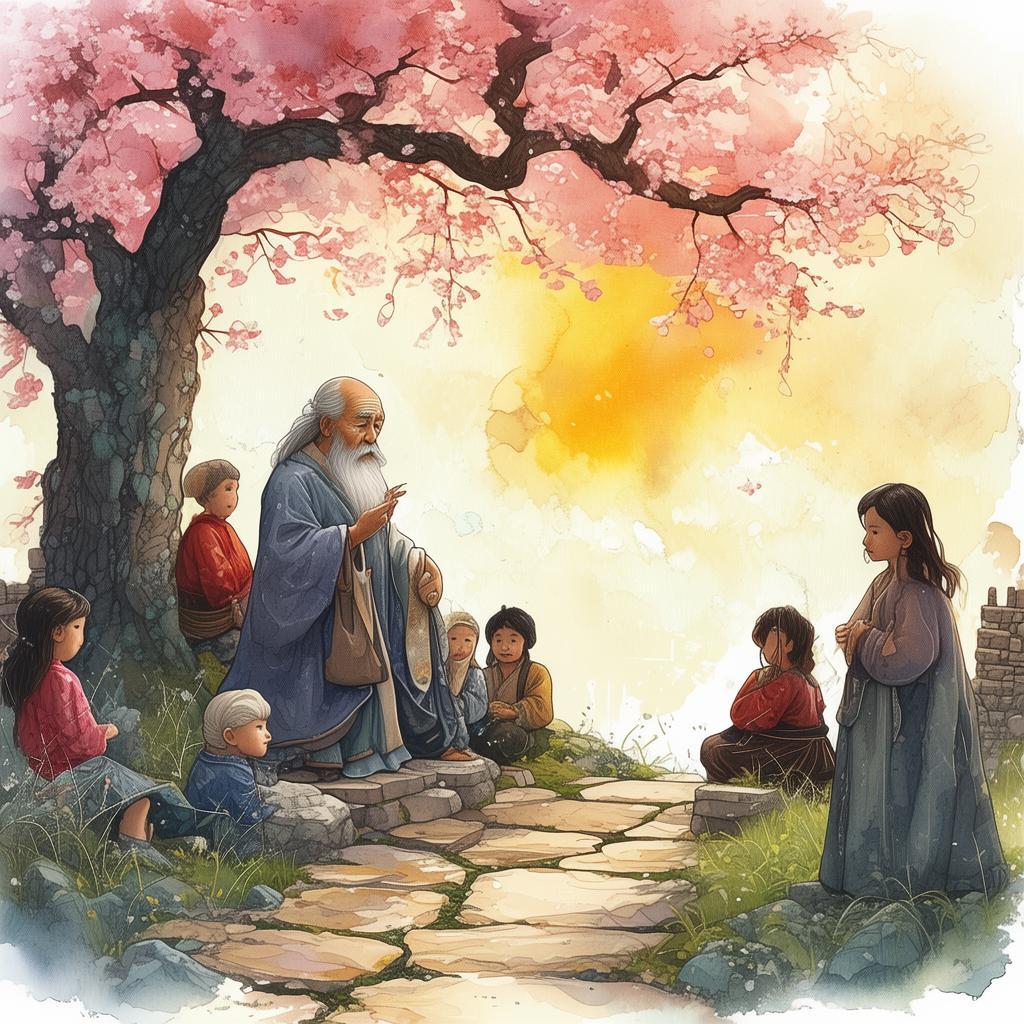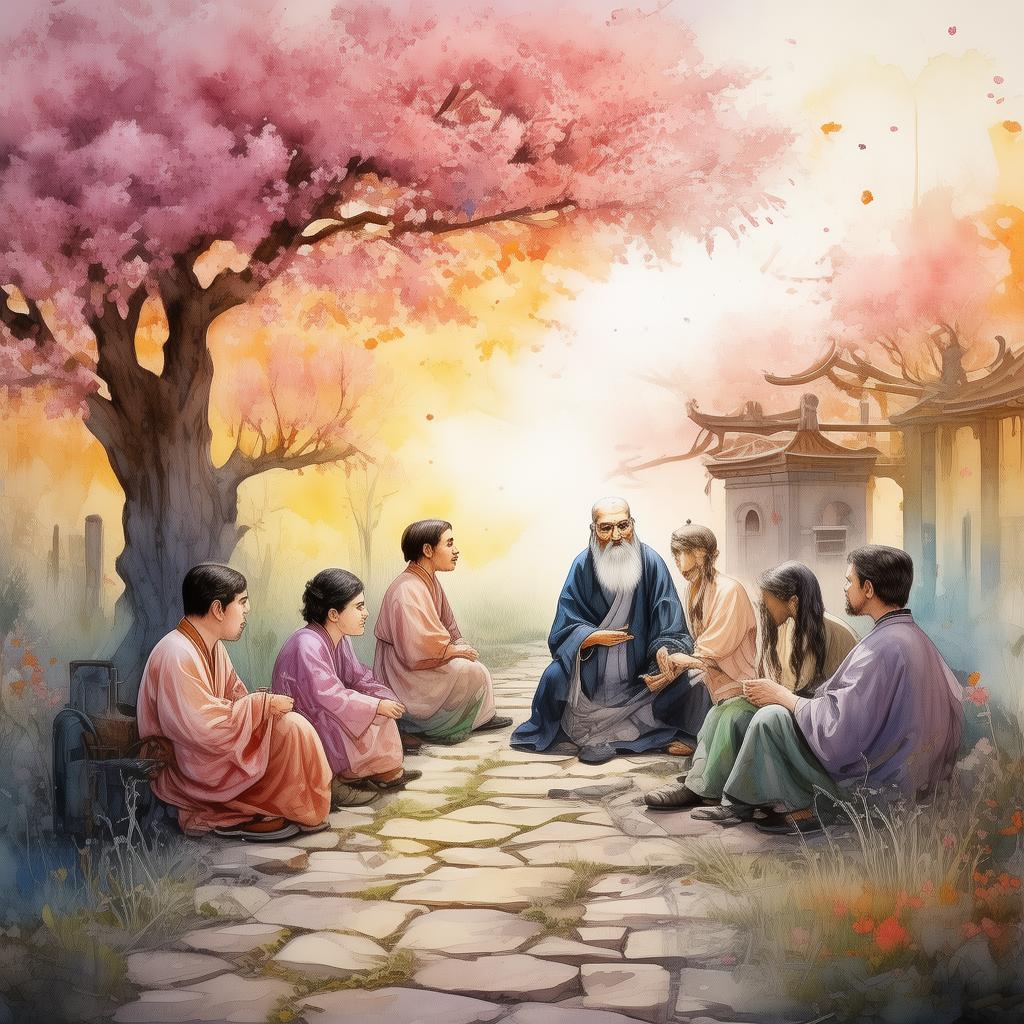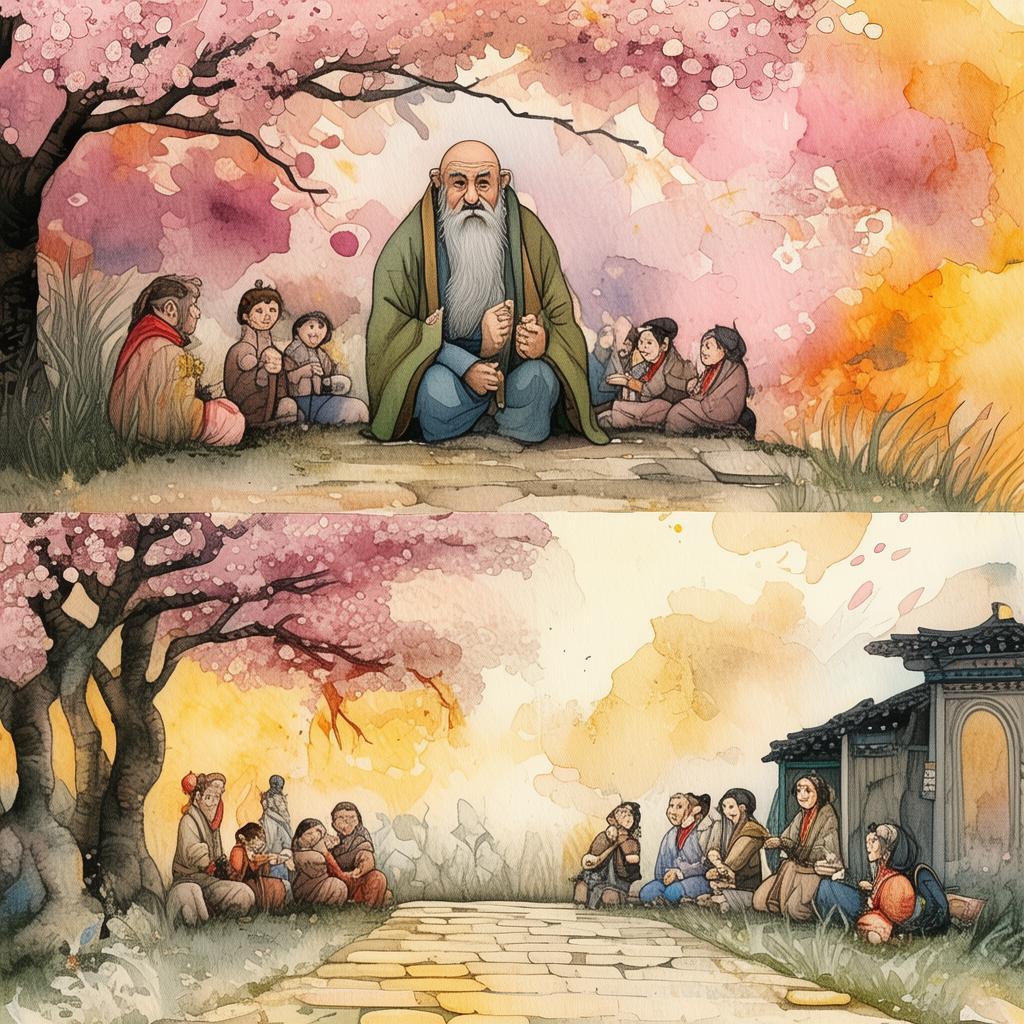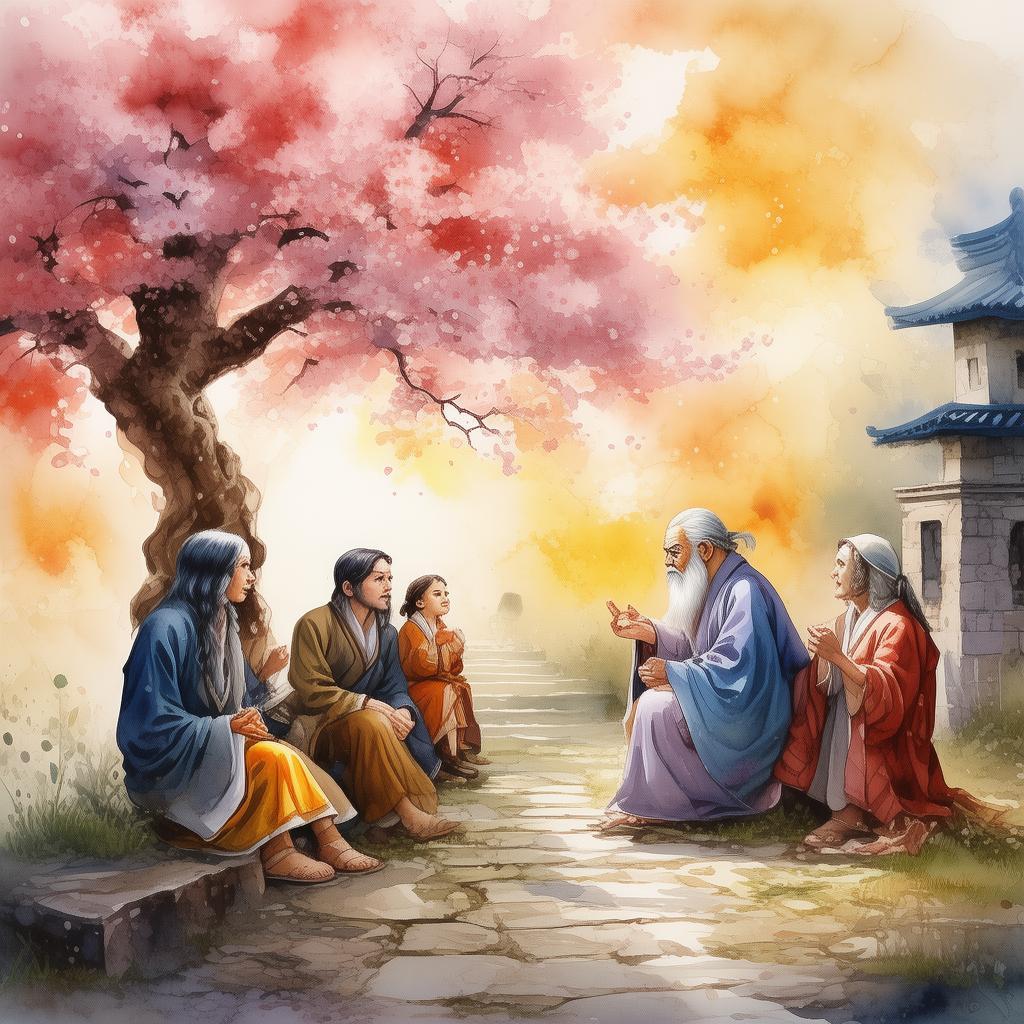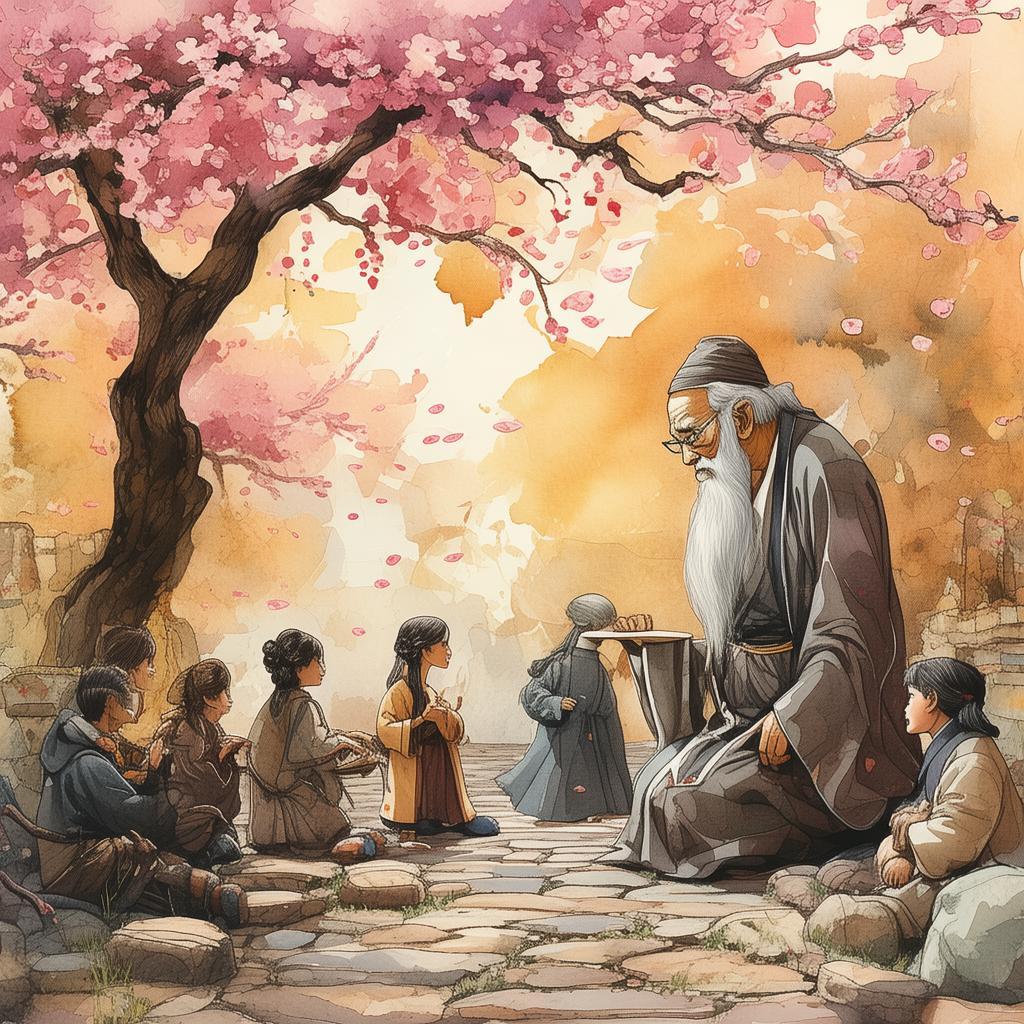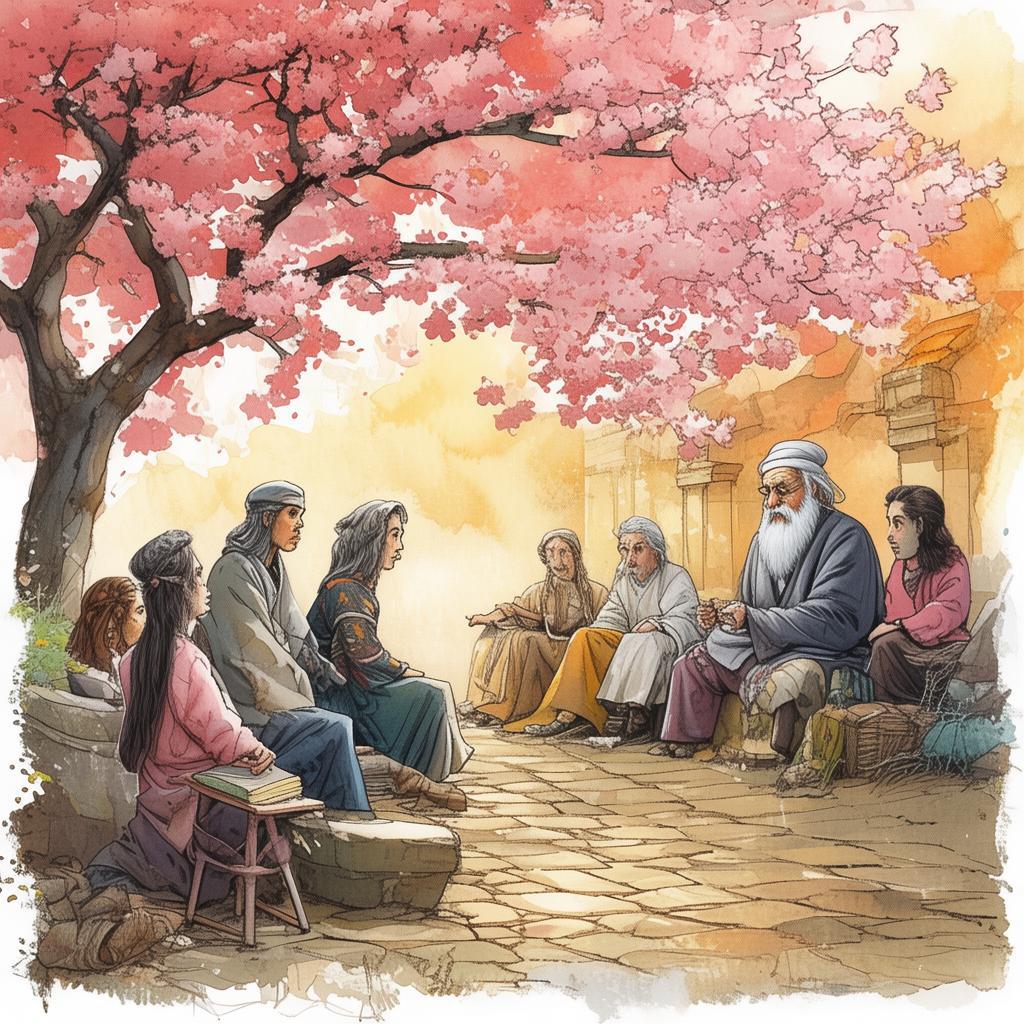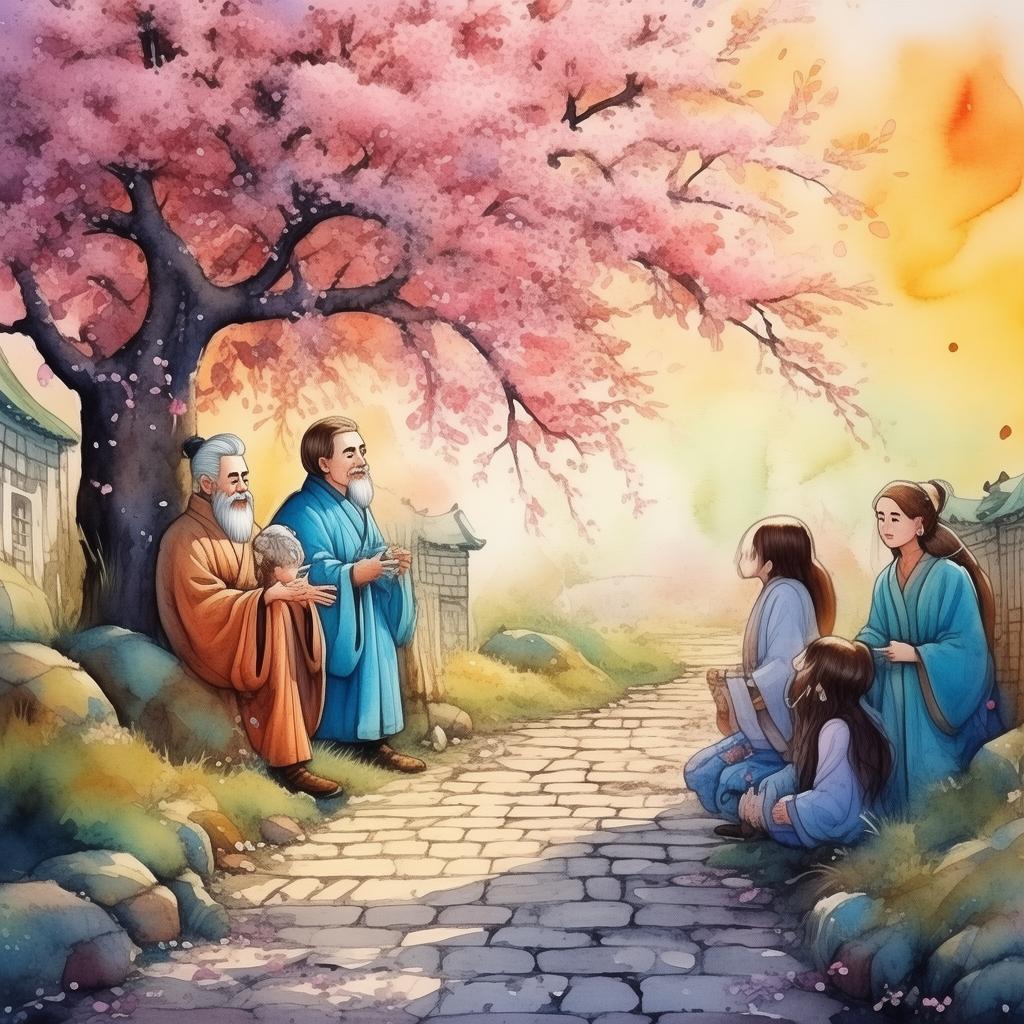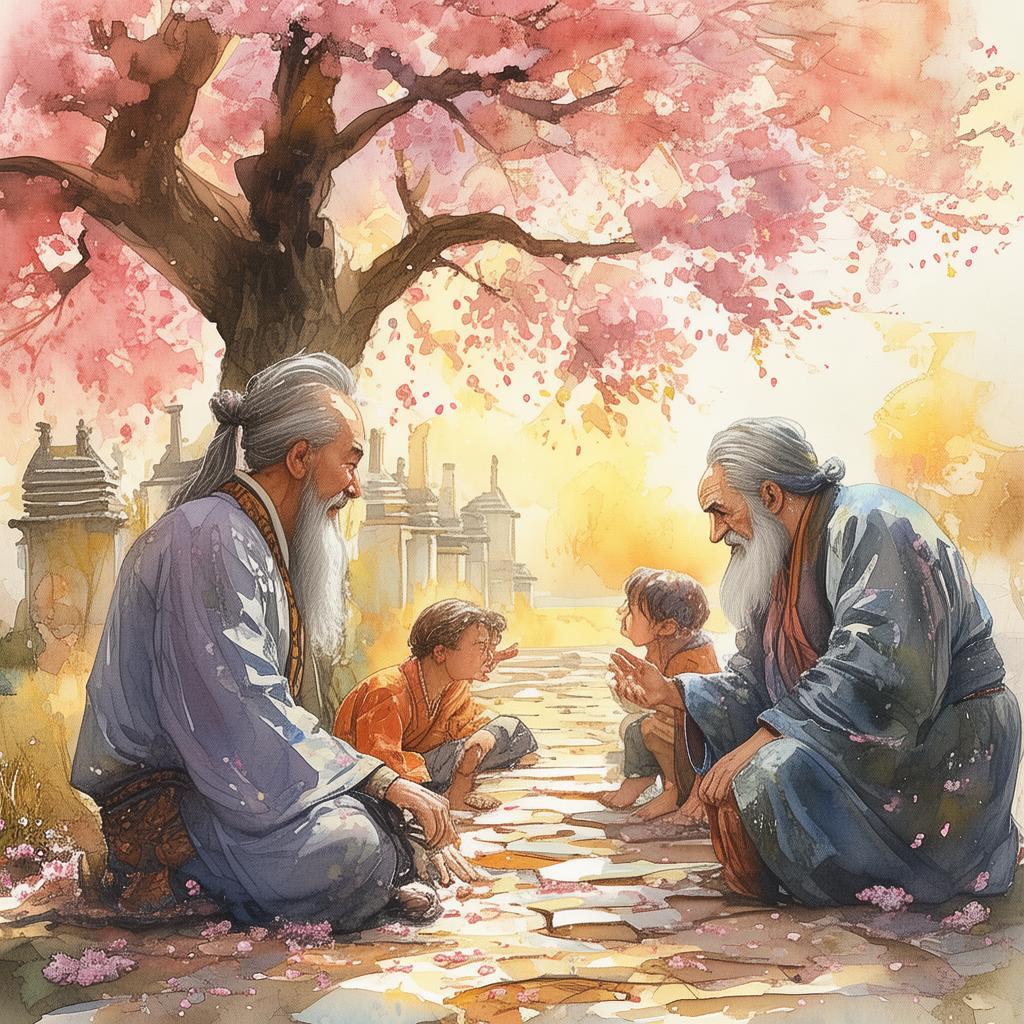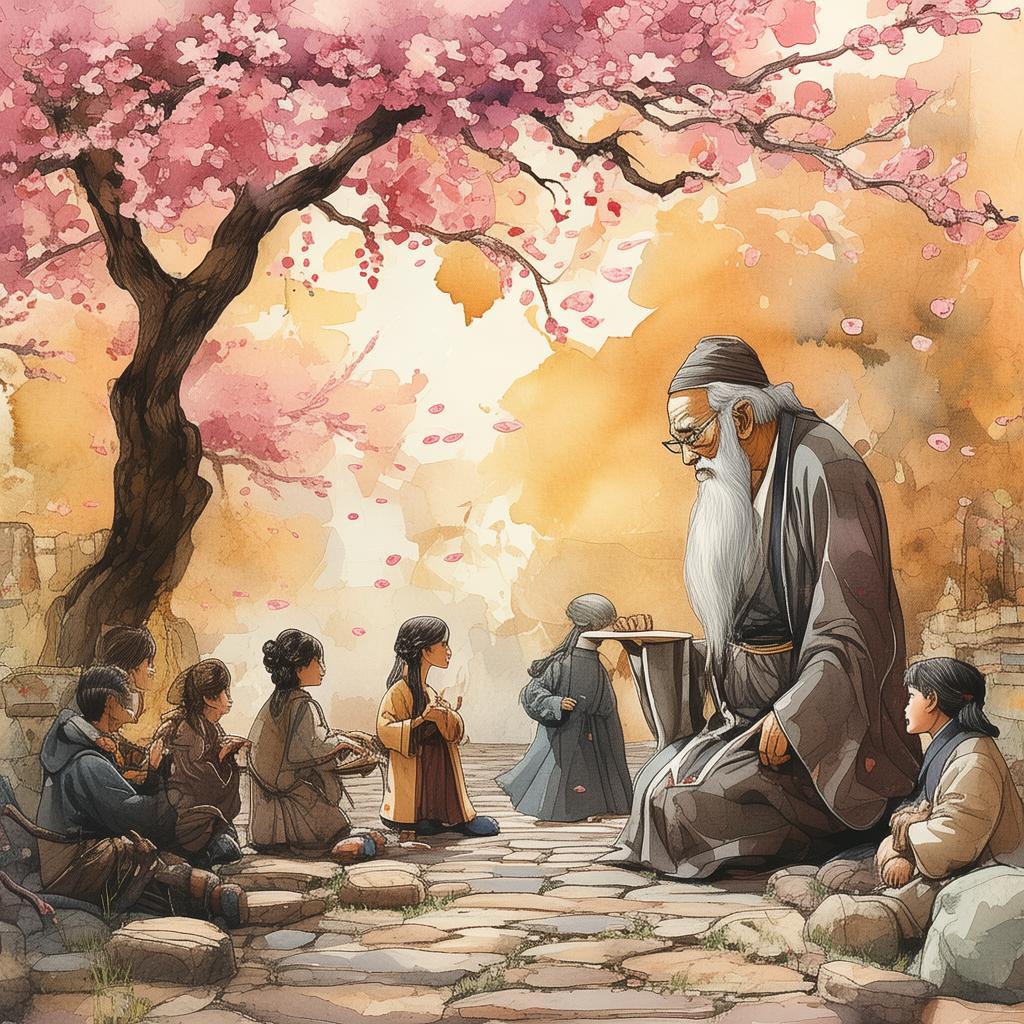Clouds of Contemplation: The Meditation War of the Mountainous Monks
In the heart of the ancient mountains, where the mist clung to the towering peaks like a shroud, two monasteries stood as sentinels of serenity. One, known as the Zenith Monastery, nestled in a valley bathed in the golden glow of the morning sun, and the other, the Zenith Peak Monastery, perched atop the craggy summit, its walls a canvas of snow and stone. They were separated by a chasm too vast for a bridge of man, yet they were bound by a silent rivalry that had spanned generations.
The story began with a young monk named Chan, a protégé of the Zenith Monastery's abbot, Master Vimala. Chan was a prodigy, his mind as clear as the mountain streams that wound their way through the valley. Master Vimala saw in Chan the potential to bring glory to his monastery in the upcoming Meditation War.
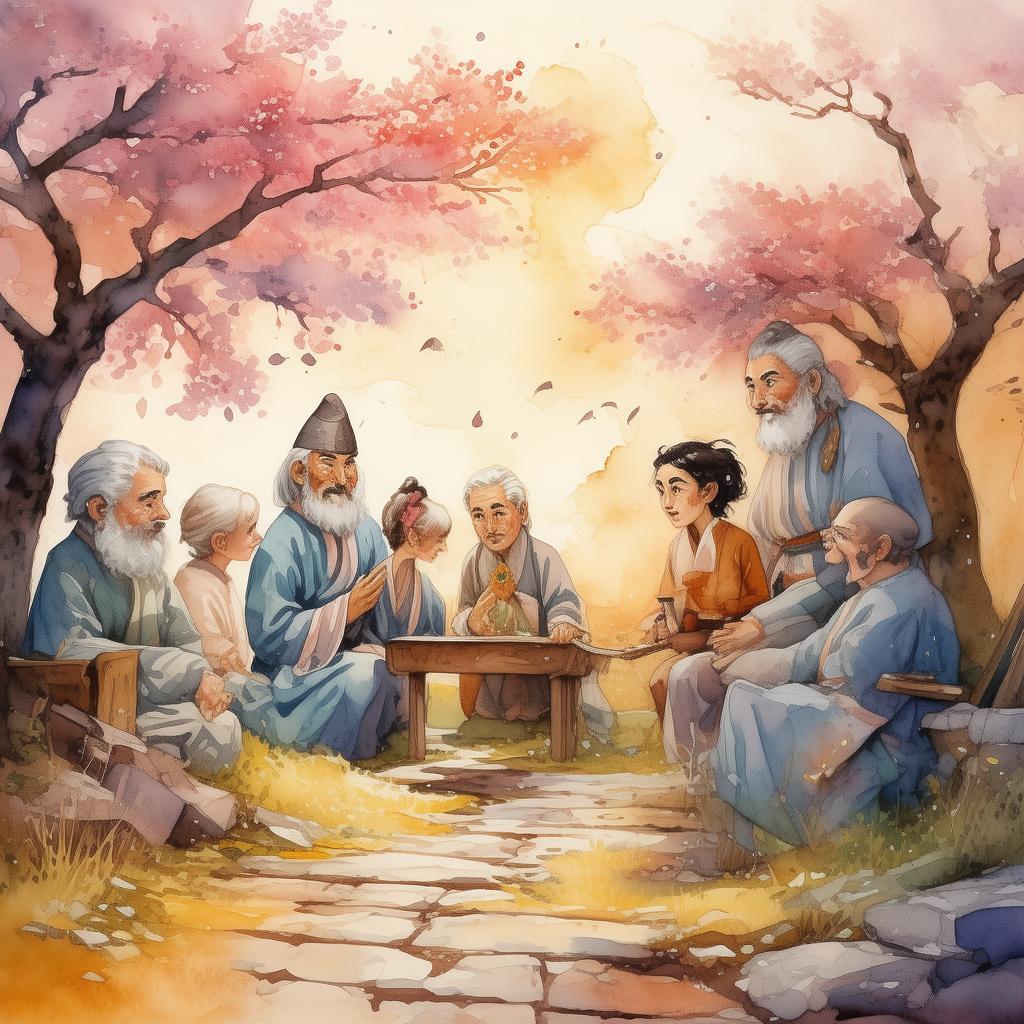
On the other side of the chasm, the Zenith Peak Monastery had its own prodigy, a monk named Shanti, the daughter of the peak's abbot, Master Dharma. Shanti was no less skilled in meditation, her focus and determination as sharp as the winds that howled through the summit's caves.
The Meditation War was a contest not of strength or weaponry, but of the inner strength of the monks. Each year, a chosen monk from each monastery would engage in a silent, solitary meditation, the duration to be decided by the outcome of their inner struggle. The winner was not the one who meditated the longest, but the one whose meditation was purest, whose mind was free from all distractions, and whose heart was filled with compassion and understanding.
The year of the war was upon them, and the monks prepared for their trials. Chan and Shanti were the chosen ones, their reputations as the best of the best precedents to their silent battle. They spent days in meditation, their forms becoming one with the earth, their breaths the rhythm of the natural world around them.
Chan, with his serene demeanor and deep concentration, seemed to be in a constant state of meditative bliss. He often spoke of the peace he found within his mind, the harmony with the world around him. But to Master Vimala, there was something missing in Chan's meditation—a hint of ambition, a glint of rivalry that did not belong in the heart of a monk.
Shanti, on the other hand, was a living contradiction. Her meditation was intense, her focus so piercing that it seemed to cut through the very fabric of the air. Yet, Master Dharma often commented on the restlessness in her gaze, a hint of a fire that should have been extinguished by years of contemplation.
The day of the war arrived, and the monks were led to the starting point, a clearing at the base of the chasm. The abbots exchanged a nod, a silent agreement that the true contest was not between the monks, but between their monasteries. The monks were instructed to meditate until one could no longer continue, their resolve tested to the very edge of their being.
Chan and Shanti began their silent dance, their minds the battlegrounds where thoughts and desires fought for dominance. Chan found his peace, his mind a tranquil pond, the ripples of his thoughts barely visible. Shanti, however, found her thoughts a tempest, the winds of ambition and pride howling with relentless fury.
Days turned into nights, and the monks continued their silent struggle. Chan's form remained as still as a statue, his mind a sanctuary from the chaos of the world. But as the days passed, Master Vimala noticed a change in Chan. The serene pond of his mind was becoming turbulent, the ripples of ambition and pride starting to surface.
Shanti, on the other hand, found herself at the brink of collapse. The fire of ambition was burning her from the inside, and she was struggling to maintain her focus. In her moments of deepest meditation, she would see visions of her monastery's victory, of the glory that awaited her.
One evening, as the moon hung low in the sky, Chan and Shanti were both at their limits. Chan's mind was a whirlwind, his resolve crumbling under the weight of his ambition. Shanti, in her exhaustion, saw a vision of Chan, his form shrouded in darkness, his spirit broken.
Suddenly, the vision shifted, and Shanti found herself in the shoes of Chan. She saw the beauty of the world around her, the simplicity of life, and the purity of the monks' intentions. In that moment, she realized the folly of her ambition, the emptiness it left in her heart.
Chan, feeling the weight of Shanti's vision, found his inner peace once more. The whirlwind of ambition subsided, and he returned to the tranquility that had been his home. The two monks, now understanding the true nature of their rivalry, began to meditate together, their spirits intertwined in a silent dance of harmony.
The Meditation War ended with a draw, not because neither monk could continue, but because they had both reached the pinnacle of their meditative abilities. Master Vimala and Master Dharma exchanged a knowing smile, their rivalry put to rest as their monks had found the path to true understanding.
The Zenith and Zenith Peak Monasteries remained separate, their walls and beliefs a testament to their individuality. But the Meditation War had taught them a valuable lesson—the true strength of the spirit lies not in competition, but in the pursuit of inner peace and understanding. And so, the mountains echoed with the whispers of the monks, their voices blending into the wind that carried their message far and wide.
As the years passed, the story of the Meditation War spread, becoming a legend that would be told for generations. And though the monks of the Zenith and Zenith Peak Monasteries would continue to meditate in their own ways, they would always remember the lesson of the war—the power of the spirit, and the beauty of silence.
✨ Original Statement ✨
All articles published on this website (including but not limited to text, images, videos, and other content) are original or authorized for reposting and are protected by relevant laws. Without the explicit written permission of this website, no individual or organization may copy, modify, repost, or use the content for commercial purposes.
If you need to quote or cooperate, please contact this site for authorization. We reserve the right to pursue legal responsibility for any unauthorized use.
Hereby declared.
